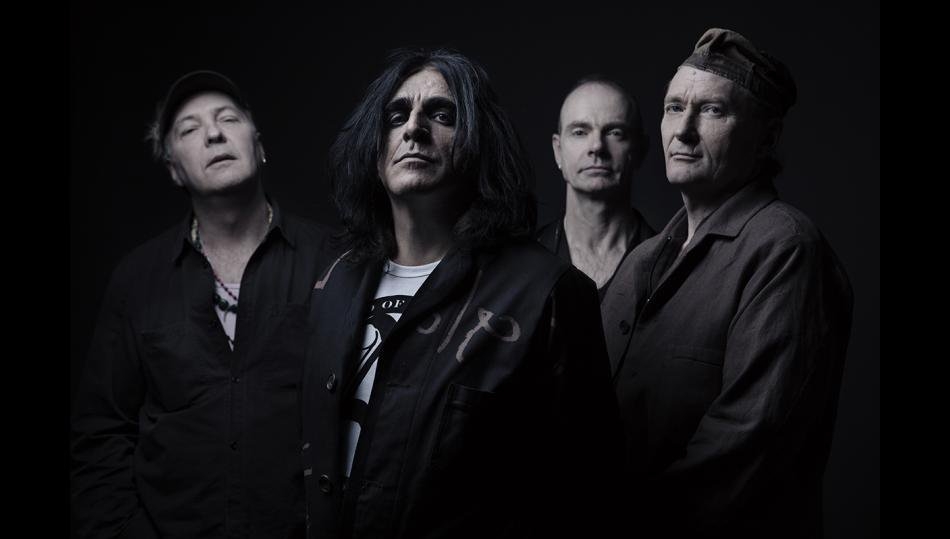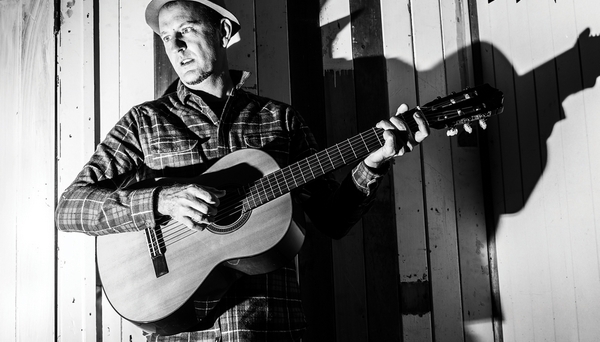“Ultimately the only truly great rock music is music that’s angry, has a fuck-off attitude, and is innovative. I look at the headlines now and it’s the same themes as we were dealing with 30 years ago. I think the relevance of Killing Joke is coming to the fore by virtue of the fact that no other bands are dealing with the issues around us in a significant way.”
Killing Joke formed in the late-1970s when Coleman, drummer ‘Big’ Paul Ferguson, guitarist Kevin ‘Geordie’ Walker and bass player Martin ‘Youth’ Glover came together in London. Each band member displayed anti-social tendencies – Coleman jokes that without a career in rock’n’roll any one of them could have ended up, “turning into common criminals or even worse, murderers”.
While punk had stirred the foundations of English music, by 1979 its creative and political spark had been tempered by corporate interests. Coleman cites Public Image Ltd and “a very mutant version of Adam and the Ants before he sold out” as particular inspirations. But apart from Joy Division, Killing Joke saw itself as outsiders.
“We were very interested in what was an English rhythm,” Coleman says. “We wanted to reject guitar solos, and we wanted to find the funk music that doesn’t exist in the UK as it does in many other countries.”
Both Coleman and Walker had become interested in mysticism and the occult, which immediately began to permeate the band’s music. “For my own part, I think what Killing Joke added was a mysticism, a very secular vision,” Coleman says.
The band’s appetite for psychotropic drugs introduced another chaotic element to their music, and cemented Killing Joke’s reputation for volatility. Unflattering critics were harangued, and in the early ‘80s Coleman disappeared to Iceland on the eve of a Top of the Pops performance, apparently due to fear of an imminent apocalyptic event.
The ‘80s and ‘90s was a period of periodic success and turmoil for Killing Joke. In 2007 the original band members attended the funeral of former bass player Paul Raven, who’d replaced Glover in the early-‘80s. Coleman, Ferguson, Geordie and Glover agreed to cast aside old grievances and reconvene.
The reunited quartet released Absolute Dissent in 2010 and MMXII in 2012, both to critical acclaim. 2015 sees the release of a new record, Pylon. Featuring songs titled New Cold War, I am the Virus, War on Freedom, Into the Unknown, Autonomous Zone, Killing Joke have evidently lost none of their original polemic spark. Coleman runs through a shopping list of his concerns with both England and the world at large: war in the Middle East, defence spending, poverty, xenophobia, nuclear power and governments’ increasing distrust in judicial authority.
“Basically you have a disillusioned populace in the West, who have no confidence in their existing establishment, and then you have this creepy surveillance state that we’ve let ourselves in for, without any checks and balances.”
The relationship between the original members of the band has been, at specific times, fraught. But Coleman, whose sobriety since 2006 has diminished his own volatility, says Killing Joke is a functional unit.
“I consider Paul, Georgie and Youth my dearest friends on this planet. They are as close to me as my own blood family – absolutely. Sometimes words are exchanged and metaphors used, but we’re able to apologise [laughs].”
BY PATRICK EMERY

